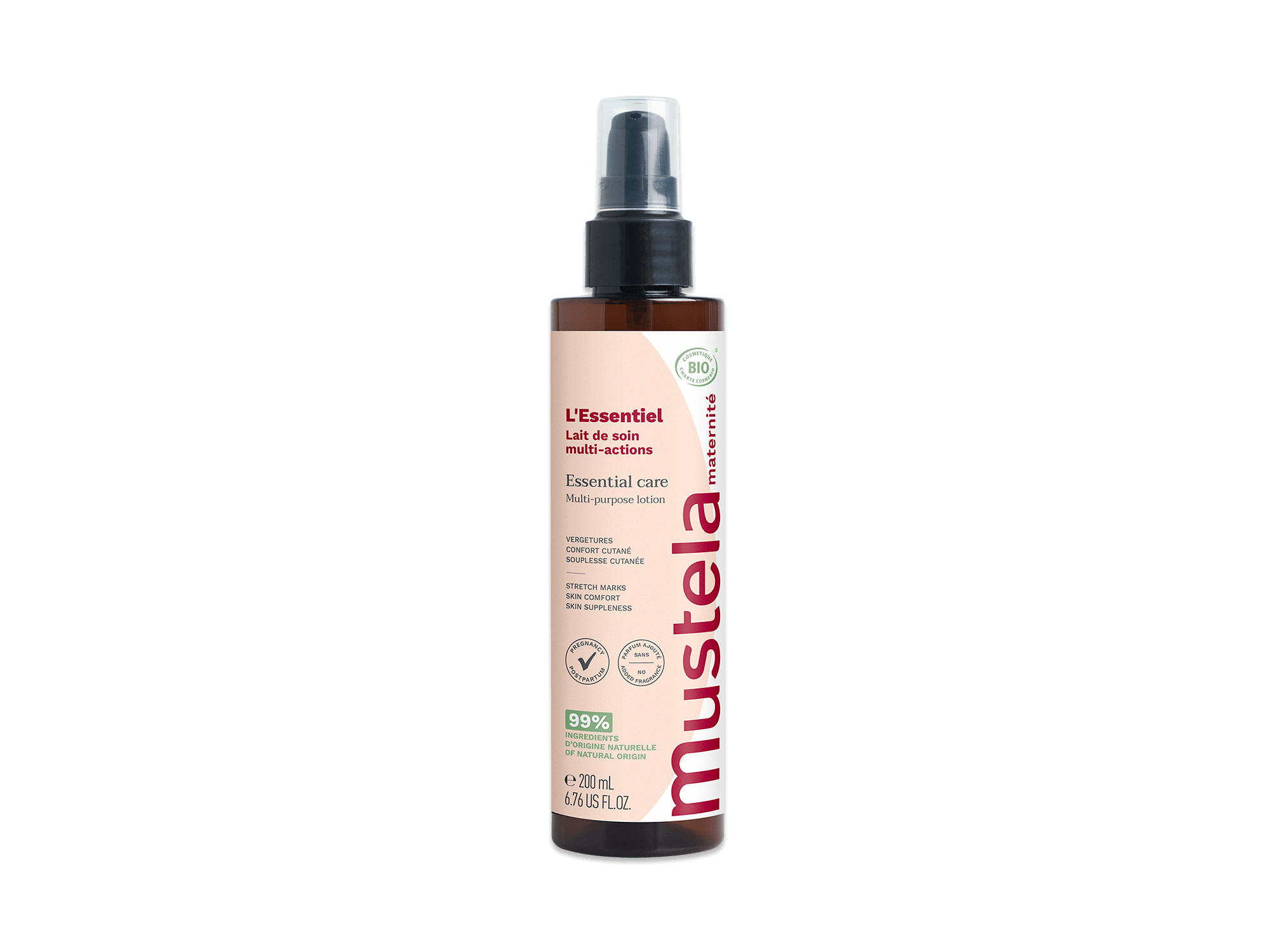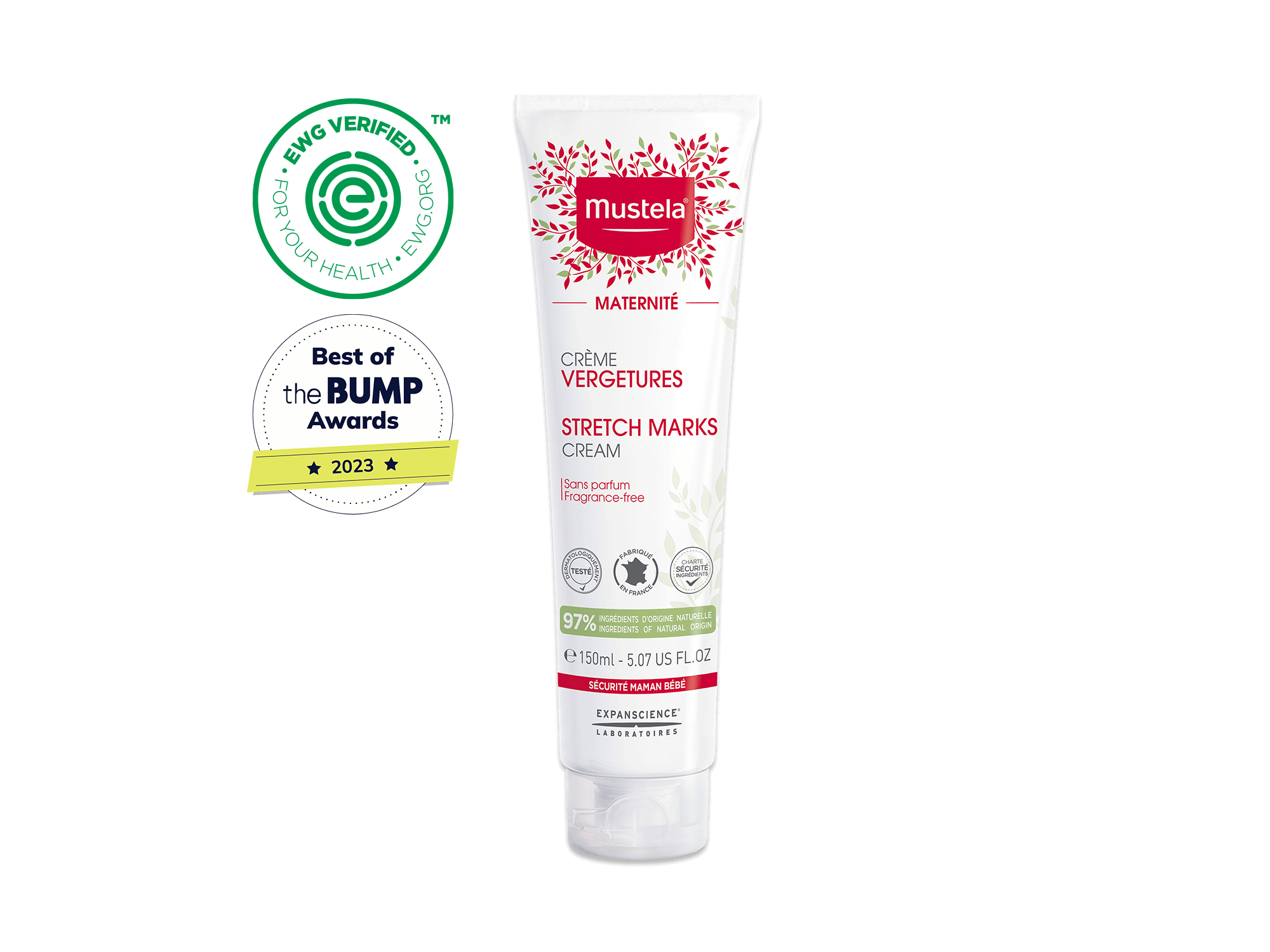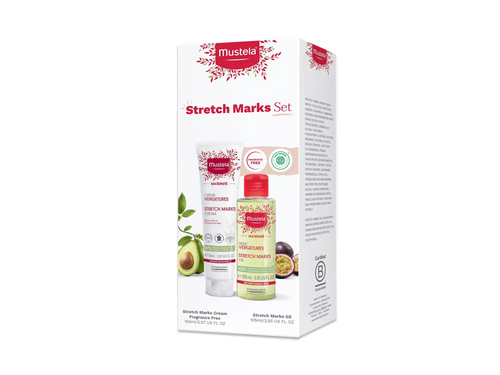Can you run while pregnant?
Staying active throughout your pregnancy is important to both your and your baby’s overall health and happiness. Whether you are a chronic marathoner or a casual jogger, you’re carrying a baby, so it’s important that you know how to safely keep running.
If you know what adjustments to make, you can stay safe and healthy while continuing to run throughout your pregnancy.
Have no fear, we’ve written a definitive guide for running while pregnant so you don’t have to give it up for the next nine months, because nobody wants to miss out on those endorphins!

Table Of Contents
- Can You Run While Pregnant?
- Running During the 1st Trimester
- Running During the 2nd Trimester
- Running During the 3rd Trimester
- The Benefits Of Exercising While Pregnant
- But Don’t Push Yourself Too Hard
- Can You Run While Pregnant? 10 Tips To Keep You Safe
- Put It Into Action
Can You Run While Pregnant?
If you’re already used to running or other moderate to strenuous exercises and have a healthy pregnancy, then you can continue running during pregnancy. But if you aren’t used to running or have any medical complications, it’s important to check with your doctor before starting.
That way, you can see if this type of exercise is safe for you. Because while it’s generally considered safe, some complications can make running while pregnant a bad idea.
For example, if you have placenta previa, running could cause bleeding. And if you are at risk for preterm labor, your doctor may also advise against strenuous exercise. Always follow your doctor’s advice to ensure your and your baby’s safety.
Also, it's important to note that your ability to run may vary throughout your pregnancy as your body changes. Here’s a quick look at what to expect during each trimester.
Running During the 1st Trimester
Early in your pregnancy, you can continue to run if it’s something you did before you became pregnant. But it’s important to listen to your body during this time.
For instance, if you feel exhausted or have trouble keeping food down, cut back on your runs’ intensity and duration. You may also want to consider running fewer days per week.
Additionally, your center of gravity shifts during the first trimester as your baby begins to grow, so you may feel off-balance. To help with this, make sure to slow down your pace and focus on running with proper form.
Running During the 2nd Trimester
During the second trimester, you may find that your energy levels have increased and your nausea has subsided. This is a great time to ramp up your running routine if you’d like.
However, you may experience more Braxton-Hicks contractions during this stage of your pregnancy. These are false labor pains that can be uncomfortable but aren’t harmful. If you experience them while running, simply slow down and walk until they subside.
Of course, if your Braxton-Hicks don't stop or you start to feel a sharp pain in your abdomen, stop running and call your doctor immediately.
Running During the 3rd Trimester

Once you reach your third trimester, you may find that your energy levels start to dip as you near your due date. This is normal and to be expected.
To help combat fatigue, get enough rest and cut back on the intensity of your runs. You may also want to reduce the number of runs you take each week.
As your baby and belly continue to grow, you will likely find that running becomes more difficult. But this doesn’t mean you have to stop altogether. Instead, just take it slow and be prepared to stop if necessary.
The Benefits Of Exercising While Pregnant
We all know the importance of taking care of our bodies and staying physically active. It strengthens our heart and muscles, helps blood flow properly, and improves mood.
These benefits all remain true when exercising while pregnant. Staying fit during your pregnancy is healthy, safe, and highly recommended!
Exercising throughout your pregnancy can lower your odds of delivery complications and reduce your risk of developing gestational diabetes.
Staying active can also reduce back and pelvic pain, bloating, swelling, fatigue, and constipation — all common uncomfortable symptoms of pregnancy. You’ll feel healthier, sleep better, stay strong, and prevent excess weight gain if you continue to exercise during pregnancy.
In addition, staying active during pregnancy also provides a mental boost. It can help reduce stress, anxiety, and pregnancy brain fog. In addition, exercise releases endorphins, mood-enhancing hormones that give you energy and make you feel good.
Pregnancy can be stressful, so it’s crucial to find ways to stay calm and relaxed. For some people, running or other forms of exercise provide this relief.
Don’t Push Yourself Too Hard

As we mentioned above, running while pregnant is safe if you’re already an experienced runner. If you weren’t running regularly before expecting, do not start now. Your body is undergoing a number of changes, and you do not need to add extra stress.
There are plenty of other safe and healthy exercise regimens you can follow while pregnant, like swimming, walking, or yoga. Aim to get at least thirty minutes of moderate exercise on as many days of the week as you can manage.
If you were an avid runner before expecting, though, feel free to continue running while pregnant. However, you may find that your typical eight-minute mile is harder to do. Maintain a pace you’re comfortable with, even if it’s slower than your pace was before you conceived.
Instead of setting mileage goals, focus on the minutes you clock running. Remember, it’s not a race! There is no finish line, and there is no competition.
If you experience pain at any point, stop. Speak to your doctor immediately if you experience dizziness, headache, chest pain, calf pain or swelling, muscle weakness, vaginal bleeding, amniotic fluid leakage, or any signs of preterm labor.
Do not try to push through any discomfort. Stop running and consult your practitioner. Pregnancy is no time to test your limits and prepare for a marathon.
Can You Run While Pregnant? 10 Tips To Keep You Safe
Your typical running routine may not be as simple or effortless as it was prior to conceiving. Your body is changing and growing another human being. That’s a lot of hard work!
There are some helpful adjustments you can adopt, though, to make running while pregnant easier and more enjoyable.
1) Invest In Good Running Shoes
It is absolutely crucial to wear proper, well-fitting, supportive footwear when running while pregnant. You need to make sure your ankles and joints are safe from sprains and strains.
Your body’s shifting hormones actually cause your body’s muscles, joints, and ligaments to become more elastic, leaving you much more vulnerable to injury. This hormone, which is called relaxin, is great for when you’re in labor and need that cervix to relax and stretch, but can make you wobbly and unsteady on your feet. So take extra care when running.
The extra pregnancy weight can also put a lot of pressure on your knees, resulting in joint pain. A new, stable pair of shoes can make the biggest difference to keep you safe while running.
Make sure your new pair of sneakers fit perfectly and support your ankles and arches. If you are unsure of what kind of shoe to invest in, visit a specialty running store and get fitted by an expert. Pick up a cute, new pair that makes you feel sporty, and get ready to hit the track!

2) Buy A Good Sports Bra
A big adjustment to make when running while pregnant is taking care of your growing breasts. You may find them to be uncomfortably heavy and a nuisance when working out, but a good sports bra can help.
Invest in a sturdy, supportive bra that fits perfectly to help relieve some of the pain that may arise when running.
Look for a sports bra with wide straps for added support and comfort. The band should also be snug but not too tight around your rib cage. You may need to go up a size or two from your usual bra size to accommodate your changing breasts.
3) Know Where Your Restrooms Are Along Your Route
You have probably already noticed more pressure on your bladder. As your uterus expands, it presses on your bladder, making you feel like you need to pee a lot more often than you did before expecting.
As the weeks go along, this will only worsen, so make sure you know where you can stop to relieve yourself while running. If you have to map out a new route to accommodate more frequent bathroom breaks, do so. It’s worth it.
4) Consider Buying A Belly Support Band
As your pregnant tummy continues to grow and get heavier and more obtrusive, you may find that running becomes far more uncomfortable. The weight of your belly bouncing with every stride can leave you frustrated and tired.
Luckily, they do make support bands for pregnant bellies to help ease the discomfort. Maternal support bands help alleviate pelvic pressure, help you maintain a neutral posture (which is so important), and keep pressure off of your abdominal connective tissue.
This helps prevent dreaded pregnancy-related diastasis recti, or abdominal separation. (That’s what it’s called when the connective tissue that runs down the center of your abs gets stretched out and you get a gap between the left and right sides of your rectus abdominis muscle.)
Belly support bands can also help alleviate lower back pain, another common pregnancy complaint.
5) Remember To Stay Hydrated

It was already important to stay hydrated when you were running before conceiving, but now it is absolutely imperative. While you should already be drinking water throughout the day, be sure to drink before, during, and after your run. Dehydration can restrict blood flow to your uterus, which can cause premature contractions.
Water also does all the hard work of transporting nutrients and vitamins to your baby, so it is extra important to stay hydrated. Monitor the color of your urine to make sure you’re drinking enough fluids. It should be the color of very light lemonade — any darker and you are already on your way to dehydration.
Another bonus of drinking enough water is that it also helps keep your skin plump and hydrated, which can aid in preventing stretch marks (add in a good cream, and you’re set).
While water is the best way to stay hydrated, sometimes you need a little more than that.
For example, coconut water is an excellent source of electrolytes and can help replenish what is lost when you sweat. It’s also great for preventing nausea and vomiting, which can often happen during pregnancy (especially in the first trimester).
6) Be Careful In The Heat
Just because you can still run in the heat doesn’t mean you should. Pregnant women are more susceptible to overheating, so it is important to take it easy on hot days.
If possible, run in the cooler hours of the day, like early morning or evening. And be sure to dress appropriately. Wear loose, breathable clothing and a hat or visor to keep the sun off your face. Most importantly, don’t forget the sunscreen!
7) Run With A Partner
A running buddy can make all the difference, especially when pregnant. It will help keep you accountable and motivated to stick with your running routine and can also make time fly by.
In addition, if you run into any issues while out on your route, such as going into labor, experiencing a complication, or getting fatigued, you'll have someone there to help you get home or to the hospital.
If you have to run alone, let someone know your route and when you expect to be back. That way, they can come looking for you if you don’t return on time. And they can be on the lookout for any news reports of a woman giving birth on the road (hey, it could happen!)
Also, take your phone — just in case!
8) Listen To Your Body

We touched on this in the third-trimester section, but this is probably the most important tip of all. Just because you were able to run throughout your early pregnancy doesn’t mean that your body will let you do so until the very end.
As your pregnancy progresses and your belly gets bigger, you may find running more difficult. Don’t be afraid to slow down your pace or take more walking breaks if necessary.
If running starts to feel really uncomfortable, it may be time to hang up your shoes until after your baby arrives. You can always put them back on again after you recover.
9) Have Fun!
Remember, running is supposed to be fun! So whether you’re pregnant or not, try to enjoy the time you spend out on your runs. Take in the scenery, listen to some music, and appreciate the fact that you are able to do something so amazing.
And if you start to feel down or like you don’t see the results you want, it’s crucial to remember that pregnancy is only temporary. You’ll be back to running marathons in no time. But for now, just enjoy the ride.
10) Have A Post-Pregnancy Running Plan

Once you have your baby, you’ll probably be itching to get back out there and start running again. But it’s important to take things slowly at first. Your body has just been through a lot, and you need to give it time to recover.
Before you start any postpartum exercise, be sure to get the all-clear from your doctor. If you try to jump back into it too soon, you could experience some serious complications.
After you get the go-ahead, start slow with some walking and light jogging. Then, gradually increase your mileage and pace as you feel more comfortable. And don’t be afraid to take walk breaks — your body will let you know when it’s time to stop.
Most importantly, don’t put too much pressure on yourself to get back into shape. You just accomplished the incredible feat of growing and delivering a human being.
Give yourself some time to enjoy your new baby and let your body recover before you start worrying about getting your pre-baby body back.
Put It Into Action

To safely run while you’re expecting, keep the good habits you had as a runner before getting pregnant. Always stretch, warm up, and cool down after working out. Don’t skip any steps!
You can keep running while pregnant, as long as you do so smartly. Wear the proper, supportive gear — sneakers, sports bras, and a belly support band if you need it.
Pace yourself and don’t push your limits. Keep your water bottle filled and drink before, during, and after your run (while keeping in mind where you can stop to pee along the way!).
And, finally, always listen to your body. If something feels off or you’re just not feeling up to running that day, don’t do it. Pregnancy is not the time to push your limits. Instead, focus on staying healthy and active for you and your baby.
Oh, and if you’re starting to get stretch marks that feel weird with your running shorts rubbing on them, don’t worry. We can help with that, too!
Our Stretch Marks Serum leaves a protective, moisturizing barrier on your skin that will help reduce the appearance of stretch marks and soothe your skin. And it’s safe to use during pregnancy!
So go ahead, hit the pavement (or the treadmill) with confidence. You can do this!



















